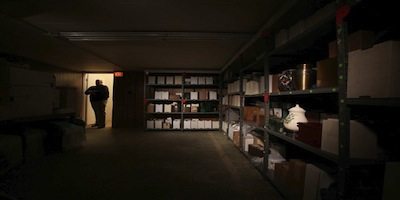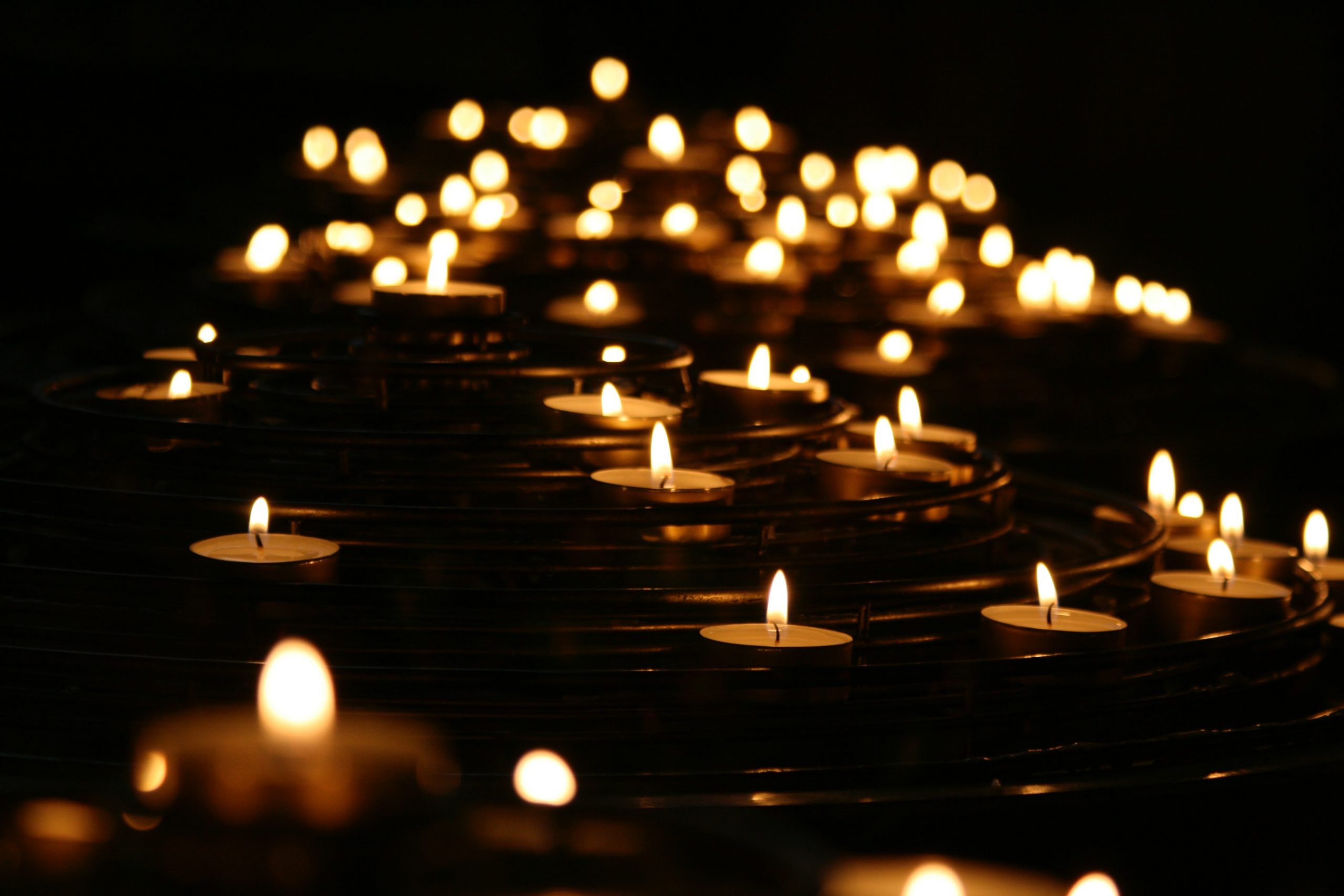Forgotten Dead, In Storage

It’s a small room that could be in any Midwestern basement: paneled walls, concrete floor, low ceiling, fluorescent lights, gray metal shelves lining two walls.
But what’s on the shelves sets this room apart: more than 100 small cardboard boxes of cremated human remains. But what’s on the shelves sets this room apart: more than 100 small cardboard boxes of cremated human remains.
Each box — the oldest dates to the late 1960s — has a person’s name written on the outside and cremation paperwork inside. These people lived, died, were cremated — and then left behind by their families.
People in the funeral industry estimate that 1% of cremated remains go unclaimed.
David Fisher, an independent Chicago-area funeral director and embalmer, says the average funeral home might have four or five sets of ashes sitting around.
Jerry Sullivan, president of the Cremation Society of Illinois as well as the International Cremation Federation, believes the number may be lower.
“I would say that every funeral home in the state of Illinois probably has one or two sets of cremated remains that people just never came back for,” Sullivan says.
Funeral homes’ policies differ on such abandoned remains: Some scatter them, some bury them, and some just hang onto them for — well, if not for eternity, at least in perpetuity.
“I’ve been in the [funeral] business since 1970,” Sullivan says. “My parents had a funeral home from 1952. So I’ve got some of theirs. I have some from businesses we’ve bought or inherited. . . .
“I remember we bought a funeral home, and there was a file cabinet there. We assumed it was files. Then we opened it and there were 10 or 15 sets of cremated remains. We still have them.”
Sullivan stores the remains in this climate-controlled room in one of the Cremation Society’s facilities in a Chicago suburb. Some of the remains belong to friends or acquaintances. On one shelf resides a machine shop owner he knew. Side by side on another shelf are two brothers. And he’s on a first-name basis with Mary and Roy.
“Oddly enough, to me, it feels like they’re relatives,” he says. “I feel they’re in better care with me than with somebody else.”
Illinois law is fuzzy regarding a deadline for the disposition of remains. Many funeral home directors play it safe and hold on to them out of concern that a relative might come for them later.
But how does a family member get left behind and forgotten?
Before prepaid funerals, some families couldn’t pay the bill and were reluctant to drop by the funeral home. Sometimes families aren’t especially close and no one wants to take responsibility for a distant relative. Or maybe the survivors didn’t know what to do with remains, so they did nothing.
“I think, probably, the most common reason was they just didn’t want them,” says Fisher. “They didn’t have any idea what they wanted to do, so they just left them at the funeral home.”
And the funeral director is left with the ashes.
“Usually it’s about a 60- to 90-day time when we start to encourage a family more aggressively to come on in, meet with us again,” said David Klein of Dignity Memorial, a Houston-based company that operates hundreds of funeral homes and cemeteries nationwide. “Or if there’s just no contact we’ll continue to hold them over the next two or three months as well, till a point when we feel comfortable enough — it could be nine months or a year — that we can say, OK, we’ve done our duty.”
Dignity sends the remains to a central place — a mausoleum at one of its cemeteries.
“Some funeral homes will pay to have them buried,” Fisher says. “Some scatter them, or have a scattering service over Lake Michigan.”
Says Sullivan: “I know some put them in a mausoleum niche or have a burial. It just seems impersonal to me.” So he holds on to the boxes, no matter how long it takes until someone claims them.
“Our record is nine years,” he said.
But records are made to be broken. Less than an hour after saying that, in late December, Sullivan received a call from a man seeking the ashes of his sister, who died in 1991. A family dispute with the woman’s ex-husband was the reason for the delay. The ex-husband had recently died, and the brother began pursuing his sister’s whereabouts.
Sullivan knew right where the remains were.
“He wants them buried with their mother and father,” he said later. “He wanted to purchase an urn and have us take her to the cemetery and bury her for him.”
Author: bhageman@tribune.com
Source: LA Times




